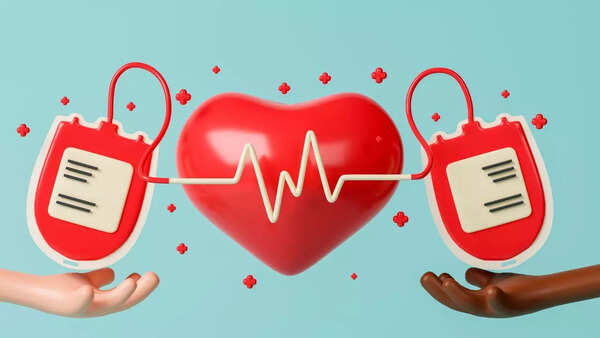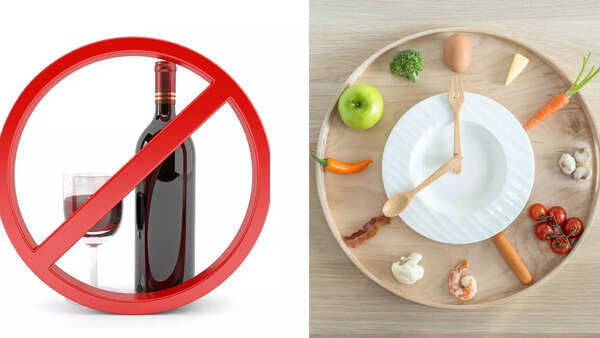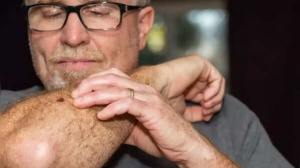Donating blood is a selfless act that can save lives. However, it's essential to prepare your body properly to minimize potential side effects like fatigue or anemia. Knowing what to eat, drink, and do before and after donating blood is crucial for a smooth and safe experience. Prioritizing hydration and consuming iron-rich foods are key strategies.

By taking these precautions, donors can ensure they feel their best and continue to contribute to this life-saving practice. A well-nourished body is your best asset during the donation process, helping to prevent complications.
According to Healthline, incorporating these foods into your pre-donation diet is highly recommended:
Iron is vital for hemoglobin production, the protein in red blood cells that carries oxygen. Maintaining adequate iron stores is essential for overall health. Dietary iron comes in two forms:
Heme iron: Found in animal products, it is easily absorbed (up to 30%).
Nonheme iron: Found in plant-based foods, it has a lower absorption rate (2-10%).

To increase iron levels before donating, focus on heme iron-rich foods such as:
Consuming these foods helps lower the risk of iron deficiency anemia after donation.
Vitamin C enhances the absorption of nonheme iron (plant-based iron). To maximize iron uptake, include vitamin C-rich foods in your diet:

Combining these vitamin C sources with nonheme iron foods will significantly improve iron absorption.

Hydration is key before donating blood. Dehydration can lead to dizziness and low blood pressure. The American Red Cross advises drinking an extra 2 cups (16 ounces) of water or non-alcoholic beverages, in addition to the recommended daily intake of 9-13 cups (72-104 ounces) of fluids.
To ensure a successful blood donation, Healthline suggests avoiding the following:
Alcohol: Refrain from drinking alcohol for 24 hours before donating, as it can cause dehydration. If you do consume alcohol, be sure to increase your water intake.
Fatty foods: Avoid foods high in fat (e.g., fries, ice cream) as they can interfere with blood test results.
Iron blockers: Limit foods that hinder iron absorption, including:
Aspirin: If donating platelets, do not take aspirin for 48 hours prior to donation.
By avoiding these items, you enhance the likelihood that your donation will be safe and usable for transfusion.

Here are some essential guidelines to follow:
Dos Before Donating Blood

Don'ts Before and After Donating Blood

Newer articles
Older articles
 Team India Settles in Birmingham: Rahul's Mattress, Coaches' Strolls, and the Enduring Coffee Ritual
Team India Settles in Birmingham: Rahul's Mattress, Coaches' Strolls, and the Enduring Coffee Ritual
 Android Users Urged to Patch Devices Immediately Following Critical Security Flaws Alert
Android Users Urged to Patch Devices Immediately Following Critical Security Flaws Alert
 Ashada Gupt Navratri 2025: Dates, Auspicious Timings, and Esoteric Significance Explained
Ashada Gupt Navratri 2025: Dates, Auspicious Timings, and Esoteric Significance Explained
 JPG to PDF: A Graphic Designer's Guide to Conversion & Best Practices
JPG to PDF: A Graphic Designer's Guide to Conversion & Best Practices
 Skin Cancer Alert: How to Identify Suspicious Moles and Early Warning Signs
Skin Cancer Alert: How to Identify Suspicious Moles and Early Warning Signs
 IRCTC's AskDisha 2.0: AI Chatbot Streamlines Train Ticket Booking, Refunds, and Travel Information
IRCTC's AskDisha 2.0: AI Chatbot Streamlines Train Ticket Booking, Refunds, and Travel Information
 The stat that could swing every NBA team's 2025-26 season
The stat that could swing every NBA team's 2025-26 season
 Bollywood's Mythological Muse: How Indian Epics Inspire Cinematic Storytelling
Bollywood's Mythological Muse: How Indian Epics Inspire Cinematic Storytelling
 Bollywood Flashback: Jackie Shroff Accused of Untoward Advance on Young Tabu at Danny Denzongpa's Party
Bollywood Flashback: Jackie Shroff Accused of Untoward Advance on Young Tabu at Danny Denzongpa's Party
 Popular Finance YouTuber's Account Hacked: Bitcoin Scam Alert and Security Tips
Popular Finance YouTuber's Account Hacked: Bitcoin Scam Alert and Security Tips